Sea Serious PIM: Modelling Marine Socio-Ecosystems through Serious Game Design
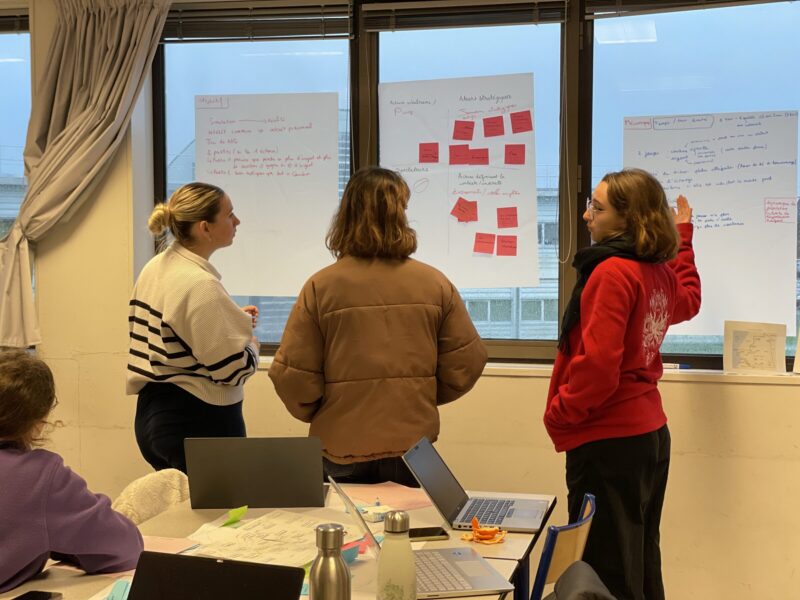
From 6 to 10 January 2025, twelve students took part in the Sea Serious PIM, exploring the question: Can a serious game be used to model a marine socio-ecosystem? Supervised by Frédérique Alban (AMURE / UBO) and Nicolas Becu (LIENSs / CNRS), participants investigated the complexity of interactions between human actors and natural resources by designing a prototype serious game.
Drawing inspiration from Companion Modelling (ComMod) approaches, students analysed actor–resource interactions using the ARDI method (Actors–Resources–Dynamics–Interactions) based on a real-world case study.
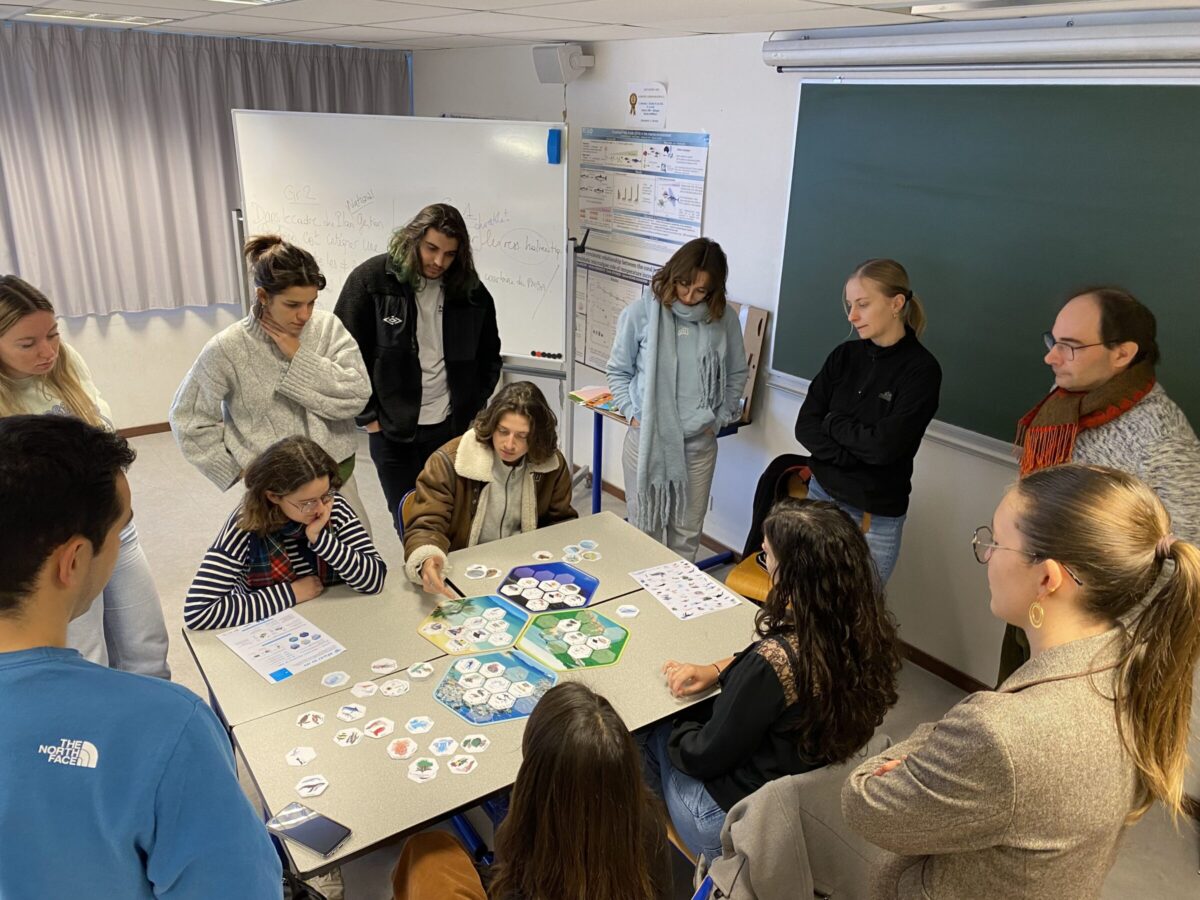
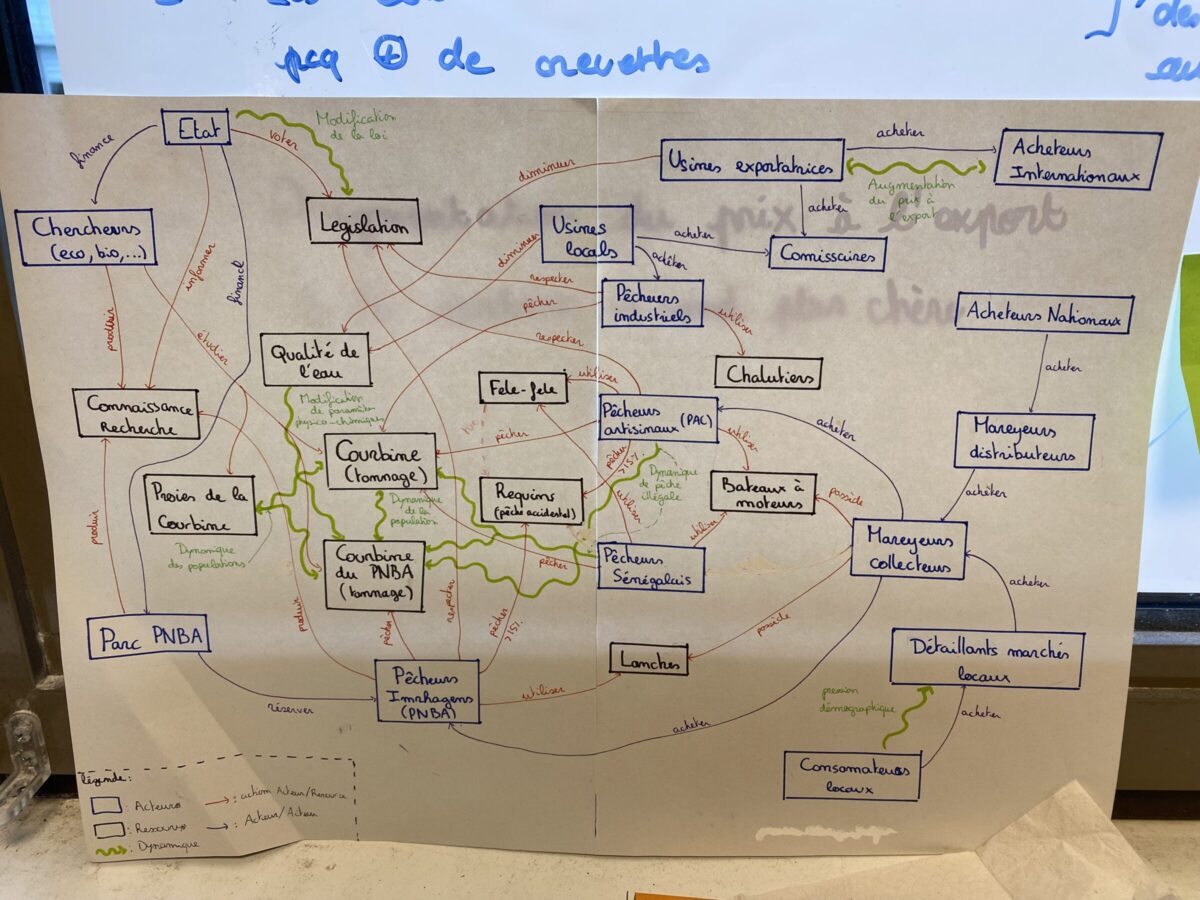
In a second phase, this conceptual model was transformed into a serious game prototype that simulated socio-economic and environmental dynamics. The goal was to use the game as a collaborative tool to better understand marine socio-ecosystems, test management scenarios, and foster dialogue among stakeholders.
Throughout the week, participants alternated between theoretical input and practical work. After experimenting with an existing serious game, they split into two subgroups, each developing its own prototype based on the same case study. Their challenge: model the interactions between fishery stakeholders and marine resources within a specific territory while considering social, economic, and ecological dimensions.
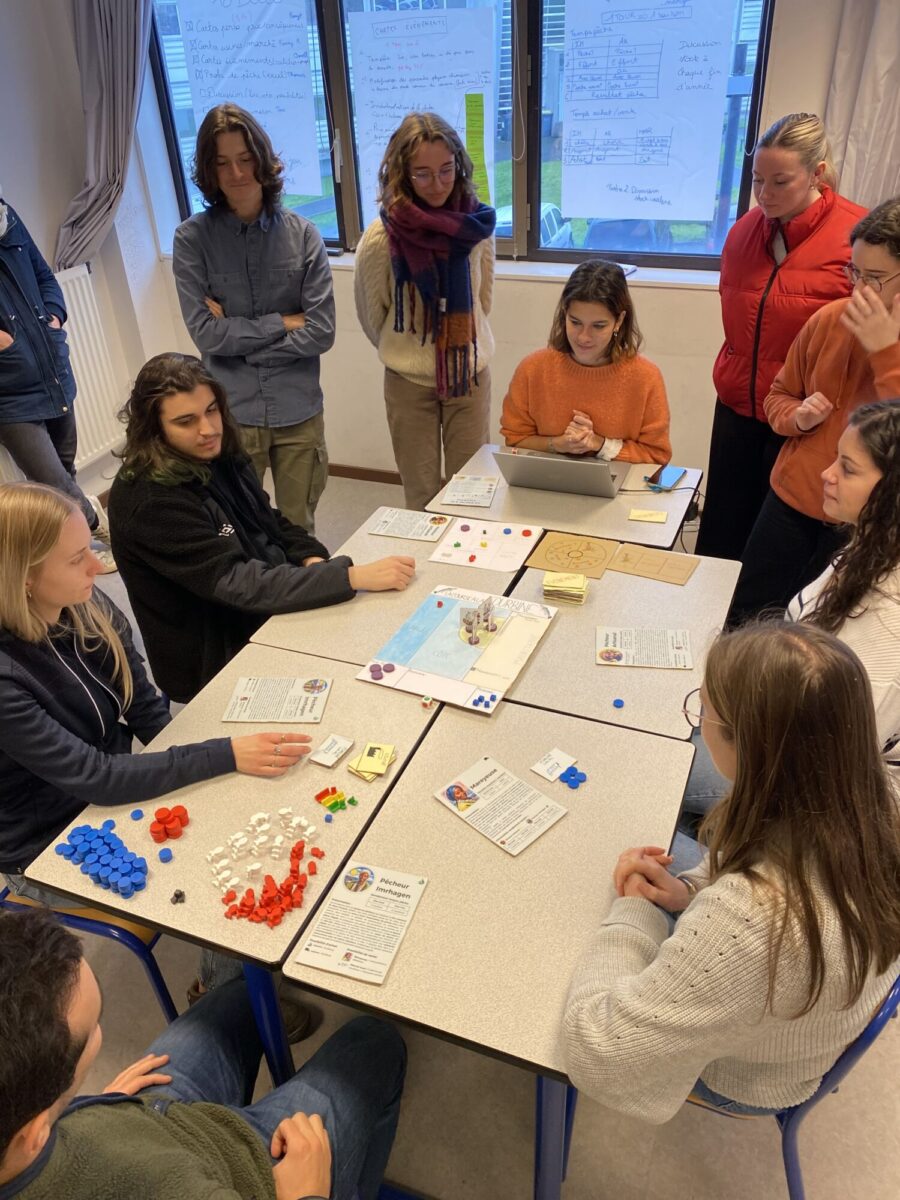
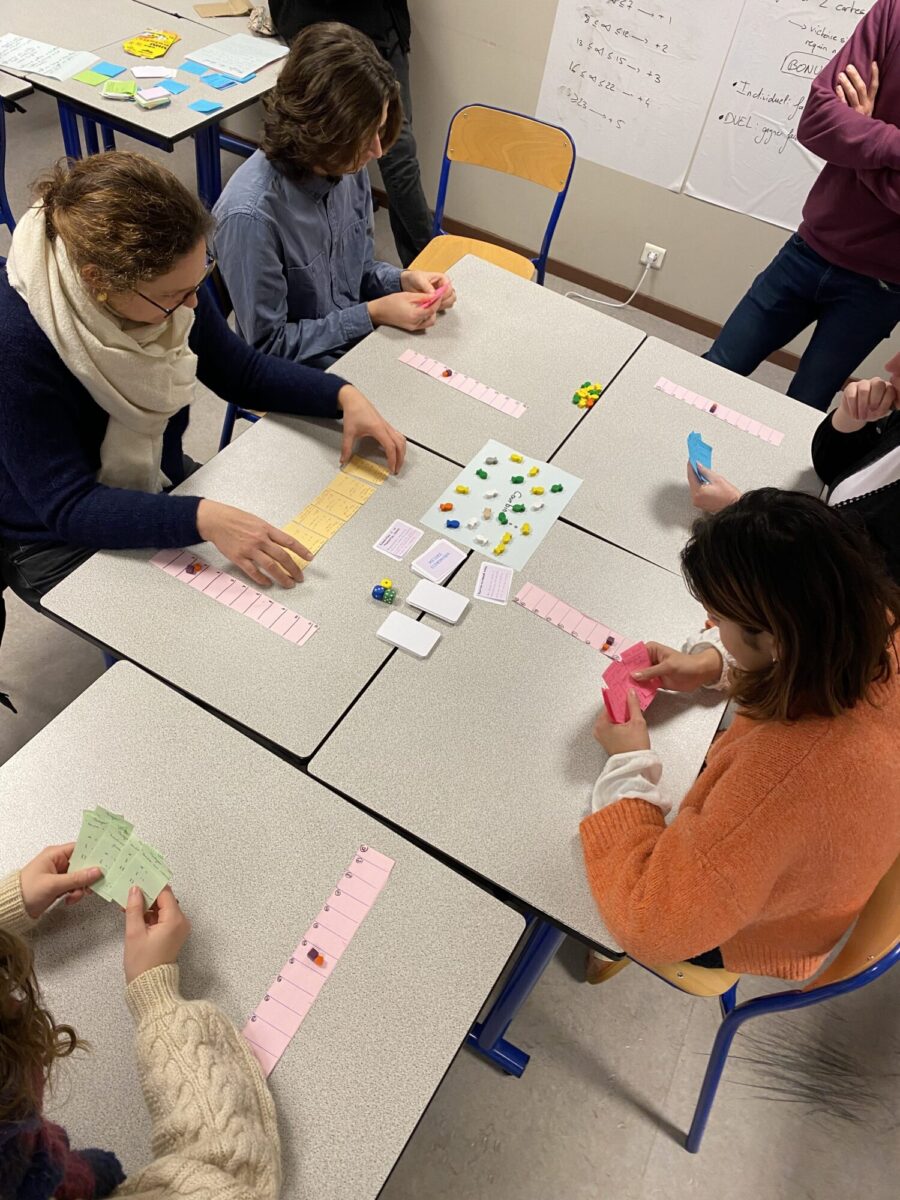
This PIM emphasised creativity, critical thinking, and collaboration. Students had to design coherent game mechanics to represent complex interactions and evolving scenarios. Collective reflection and peer feedback were key in refining and testing their prototypes.
Regular discussions helped deepen their understanding of the role of serious games as analytical and participatory tools, especially in contexts where dialogue between multiple stakeholders is essential.
The pedagogical goal was to strengthen students’ analytical abilities, particularly their capacity to examine the interconnections within socio-ecosystems. By the end of the week, participants had not only enhanced their grasp of the complexity of marine socio-ecosystems, but also discovered how serious games can serve as powerful tools for participation, education, and decision-making.
The students presented their work on Friday afternoon during the PIM Forum.
Supervisors:
- Frédérique Alban (AMURE / UBO)
- Nicolas Becu (LIENSs / CNRS)
 Attention, vous utilisez un navigateur peu sûr !
Attention, vous utilisez un navigateur peu sûr !